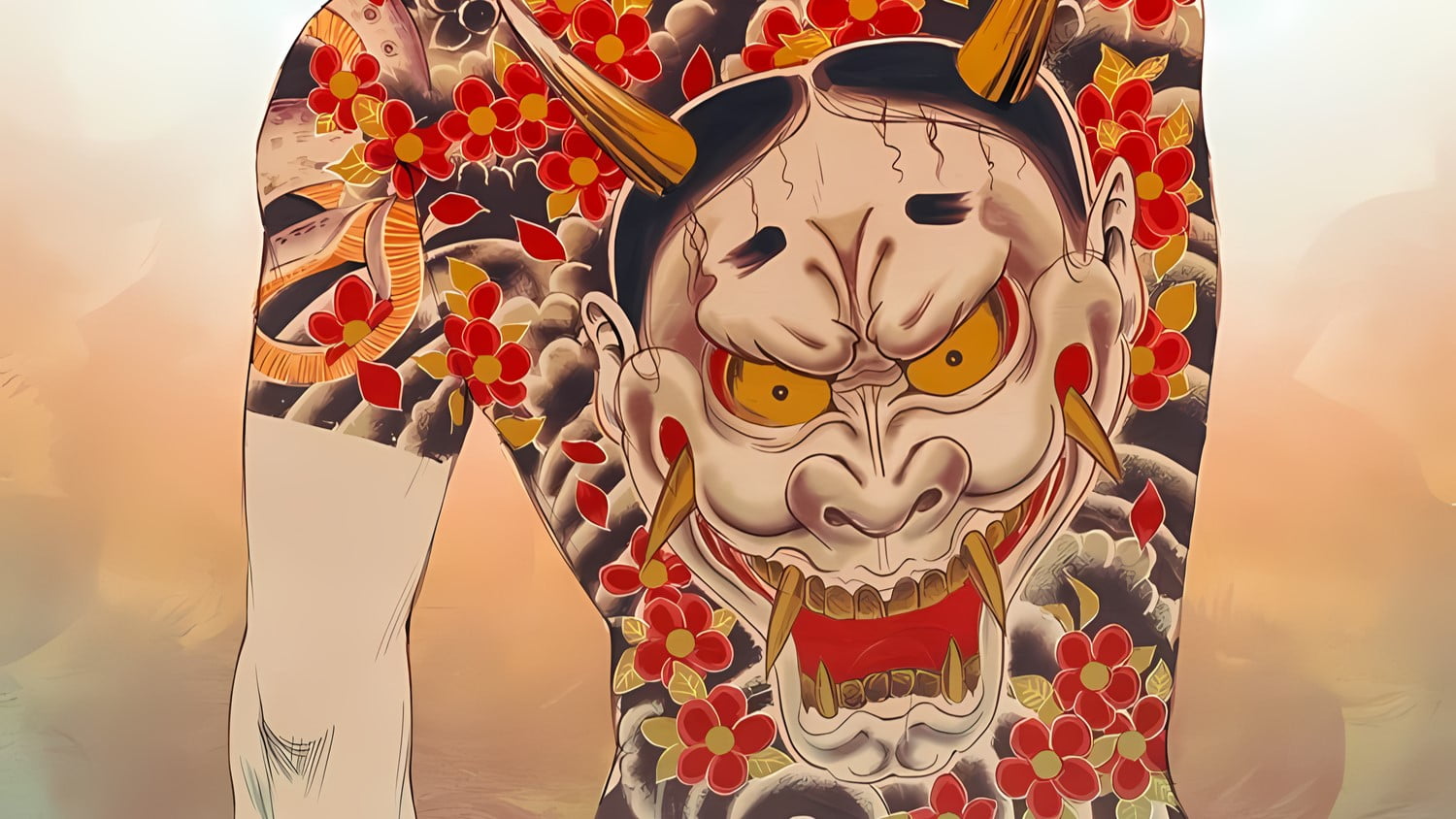Yakuza fans have long been fascinated by the intricate tattoo adorning the character Goro Majima’s body, but what does it truly symbolize? In the popular Yakuza game series, Majima’s tattoo holds deep meaning, reflecting the complexity of his character and his journey throughout the games. From the floral motif that covers his biceps, upper chest, and stretches from his neck to the back of his thighs to the Hannya mask on his back and the twin snakes wrapped around his arms and chest, every element of this tattoo has a story to tell.
Key Takeaways:
- Majima’s tattoo represents the duality of his personality, with one snake symbolizing his calm, collected side and the other representing his crazy, unpredictable nature.
- The Hannya mask in the tattoo represents Majima’s range of emotions, including anger, grief, and heartache.
- The sakura blossoms incorporated into the tattoo symbolize beauty, optimism, and strength.
- Fans have expressed disappointment that the latest Yakuza game did not introduce any new tattoo designs for Majima.
- The tattoo serves as a visual representation of Majima’s transformation and character development throughout the game series.
Understanding the Majima Tattoo Design
Majima’s tattoo is a masterpiece of symbolism, with each element representing different aspects of his character. The intricately designed twin snakes wrapped around his arms and chest are a visual representation of the duality within Majima. One snake embodies his calm and collected side, while the other reflects his wild and unpredictable nature. This juxtaposition perfectly captures the complexity of his personality, making him an enigmatic and intriguing character.
The significance of the Hannya mask, prominently featured on Majima’s back, cannot be understated. This mask is a symbol of his emotions, representing anger, grief, and heartache. It serves as a constant reminder of the pain and turmoil that Majima has experienced throughout his journey in the Yakuza game series. The Hannya mask also highlights his ability to transform and adapt, as it changes expression depending on his emotional state.
Adding to the depth of Majima’s tattoo design are the sakura blossoms. These delicate flowers symbolize beauty, optimism, and strength. They serve as a testament to Majima’s resilience and ability to find beauty even in the darkest of times. The inclusion of sakura blossoms further highlights the layers of his character and the profound impact he has on those around him.
However, despite the rich symbolism and intricate design of Majima’s tattoo, fans have expressed disappointment that there were no new tattoo designs introduced in the latest Yakuza game. Unlike previous installments, which saw additional tattoos for Majima, the latest game missed an opportunity to further explore the meaning and significance of his tattoo.
| Elements | Symbolism |
|---|---|
| Twin Snakes | Represent the duality of Majima’s personality |
| Hannya Mask | Signifies his emotions of anger, grief, and heartache |
| Sakura Blossoms | Symbolize beauty, optimism, and strength |
Majima’s tattoo is a visual masterpiece that tells a story of complexity, transformation, and emotional depth. Each element, from the twin snakes to the Hannya mask and sakura blossoms, contributes to the overall symbolism of his character. It’s a testament to the attention to detail and thought put into the Yakuza game series. However, fans are eagerly awaiting new tattoo designs for Majima, hoping to unravel even more layers of his enigmatic persona.
The Duality of Majima’s Personality
The twin snakes in Majima’s tattoo are not just decorative; they embody the duality within his character. One snake represents his calm, collected side, while the other represents his crazy, unpredictable nature. This symbolism runs deep in the Yakuza game series, as it reflects the complexity of Majima’s personality and his transformation throughout the series.
Just like the twin snakes, Majima has two contrasting sides. On one hand, he can be composed and strategic, making calculated decisions in the criminal underworld. On the other hand, he is known for his wild and erratic behavior, capable of unleashing chaos at a moment’s notice. These opposing traits make Majima a captivating character, as players never know which side of him will be revealed next.
The duality of Majima’s personality is further emphasized by the placement of the snakes in his tattoo. One snake wraps around his left arm and chest, symbolizing his calm and collected persona. The other snake coils its way around his right arm and chest, representing his wild and unpredictable nature. Together, these two snakes serve as a constant reminder of the contrasting forces at play within Majima.
| Twin Snakes | Symbolize the duality of Majima’s personality |
|---|---|
| Left Snake | Represents his calm and collected side |
| Right Snake | Represents his wild and unpredictable nature |
Overall, Majima’s tattoo is more than just an intricate design. It serves as a visual representation of his complex character, encapsulating his dual nature and the constant battle between his calm and crazy sides. The twin snakes, with their distinctive placements, create a striking image that draws players deeper into Majima’s story and leaves a lasting impression.
Emotions and Transformation: The Hannya Mask
The Hannya mask on Majima’s back holds deep symbolism, reflecting his inner turmoil and journey of self-discovery. This traditional Japanese mask embodies the complex emotions of anger, grief, and heartache, which are central to Majima’s character arc in the Yakuza game series.
According to Japanese folklore, the Hannya mask represents a woman who has been consumed by jealousy and transforms into a vengeful demon. This concept aligns with Majima’s intense emotions and the choices he must make in the face of adversity.
The Hannya mask is intricately designed, with its demonic features and menacing expression. Its inclusion in Majima’s tattoo signifies his struggle to control his darker impulses and find redemption. As Majima’s story progresses, the mask evolves, showcasing his emotional growth and transformation.
Majima’s tattoo, with the Hannya mask as its centerpiece, serves as a constant reminder of his past and his ongoing journey. It underscores the complexity of his character and the internal conflicts that drive him forward. By examining the symbolism behind this tattoo, we can gain a deeper understanding of Majima’s motivations and the depths of his persona.
Summary:
- The Hannya mask in Majima’s tattoo symbolizes his inner turmoil and journey of self-discovery.
- It represents emotions such as anger, grief, and heartache that are central to Majima’s character arc.
- The mask’s design, rooted in Japanese folklore, reflects Majima’s struggle to control his darker impulses.
- Majima’s tattoo serves as a constant reminder of his past and his ongoing transformation throughout the Yakuza game series.
| Tattoo Elements | Symbolism |
|---|---|
| Twin Snakes | Duality of Majima’s personality |
| Hannya Mask | Representation of anger, grief, and heartache |
| Sakura Blossoms | Beauty, optimism, and strength |
The Missed Opportunity: Lack of New Tattoo Designs
While Majima’s tattoo has become iconic, fans were hoping to see new additions and symbolism in the latest installment of the Yakuza series. The tattoo, which covers his biceps, upper chest, and stretches from his neck to the back of his thighs, has captivated players with its intricate design and powerful meaning. However, the lack of new tattoo designs in the latest game has left fans disappointed.
The Majima tattoo holds significant symbolism, representing the duality of his personality and his emotional journey throughout the series. The twin snakes, wrapped around his arms and chest, signify the contrasting sides of Majima – one snake representing his calm and collected demeanor, while the other embodies his wild and unpredictable nature. The Hannya mask, located on his back, symbolizes his range of emotions, including anger, grief, and heartache.
Adding new tattoo designs in each game installment has been a tradition of the Yakuza series, allowing players to further explore Majima’s character and his evolving narrative. The absence of new tattoos in the latest game not only missed an opportunity for fans to delve deeper into Majima’s persona but also left them yearning for additional layers of symbolism.
Table: Previous Tattoo Designs in the Yakuza Series
| Game Title | New Tattoo Design | Symbolism |
|---|---|---|
| Yakuza 0 | Twin Snakes | Duality of Majima’s personality |
| Yakuza Kiwami | Hannya Mask | Majima’s emotions and transformation |
| Yakuza Kiwami 2 | Sakura Blossoms | Beauty, optimism, and strength |
With each new tattoo design, players have gained a deeper understanding of Majima’s character arc, making the absence of new tattoos in the latest installment a missed opportunity for further exploration. Nevertheless, Majima’s existing tattoo continues to be a powerful visual representation of his complexity, leaving an indelible mark on fans’ hearts.
Unraveling the Complexity: Majima Tattoo’s Lasting Impression
Majima’s tattoo stands as a testament to the intricate storytelling and character development in the Yakuza game series. The tattoo, which covers his biceps, upper chest, and stretches from his neck to the back of his thighs, is a visual representation of the deep symbolism behind Goro Majima’s character.
The twin snakes, intricately wrapped around his arms and chest, embody the duality that exists within Majima’s personality. One snake represents his calm, collected side, while the other symbolizes his wild, unpredictable nature. This dichotomy is a key aspect of Majima’s character development, as he navigates between these contrasting traits throughout the game series.
The Hannya mask, prominently displayed on Majima’s back, further adds to the complexity of his tattoo. The mask represents his emotions of anger, grief, and heartache, serving as a powerful visual reminder of the internal struggles he faces. It is through these emotions that Majima undergoes a transformative journey, shaping him into the multifaceted character that fans have come to love.
Additionally, the inclusion of sakura blossoms in Majima’s tattoo adds another layer of meaning. Representing beauty, optimism, and strength, these blossoms symbolize Majima’s resilience and his ability to find hope in even the darkest of situations.
However, despite the depth and significance of Majima’s tattoo, fans have expressed disappointment that no new tattoo designs were introduced in the latest Yakuza game. In previous installments, new designs were unveiled, adding to the intrigue and excitement surrounding Majima’s character. Hopefully, future iterations of the game will bring fresh tattoo motifs, further enriching the symbolism and storytelling behind Goro Majima’s captivating persona.
FAQ
What is the meaning of Majima’s tattoo?
Majima’s tattoo holds symbolic meaning in the Yakuza game series. It represents the duality of his personality, with one snake symbolizing his calm side and the other representing his crazy side. The Hannya mask symbolizes his emotions of anger, grief, and heartache. The sakura blossoms represent beauty, optimism, and strength.
What does the twin snakes in Majima’s tattoo represent?
The twin snakes in Majima’s tattoo represent the contrasting sides of his personality. One snake represents his calm, collected side, while the other snake represents his crazy, unpredictable side.
What does the Hannya mask in Majima’s tattoo symbolize?
The Hannya mask in Majima’s tattoo symbolizes his emotions of anger, grief, and heartache. It represents the transformation and complexity of his character throughout the Yakuza game series.
Why were there no new tattoo designs introduced in the latest game?
Fans have expressed disappointment that there were no new tattoo designs introduced for Majima in the latest Yakuza game. Unlike previous installments, the tattoo remained the same. This missed opportunity left fans wanting more variety and creativity in his tattoo designs.
What is the lasting impression of Majima’s tattoo?
Majima’s tattoo leaves a lasting impression on players due to its intricate design and symbolic meaning. It reflects the complexity of his character and his transformation throughout the Yakuza game series, making it a memorable aspect of his appearance.






